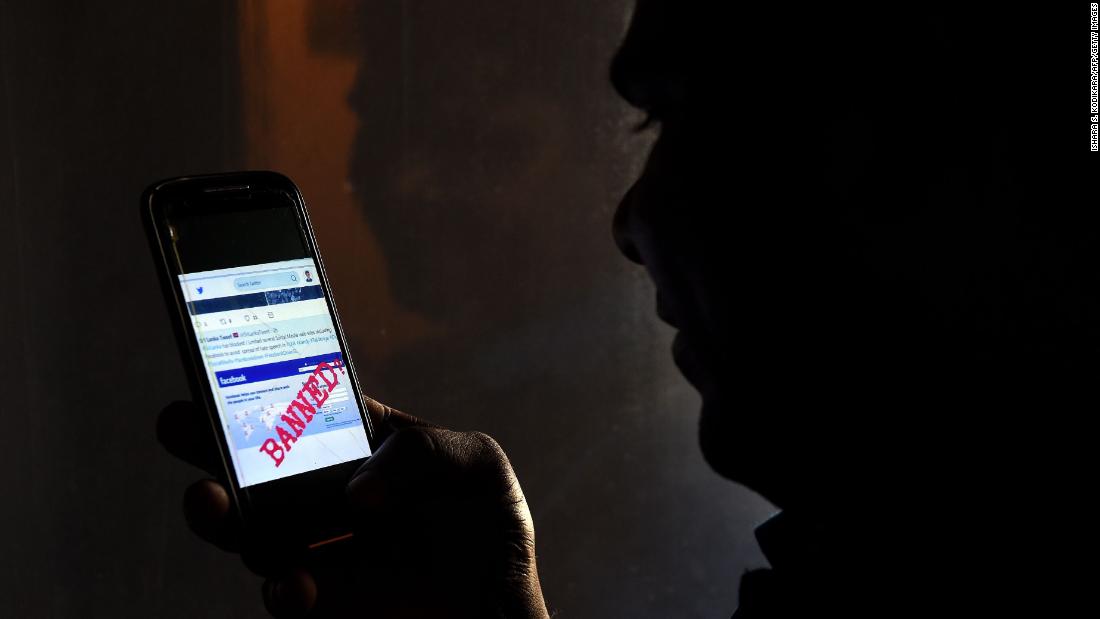
The government on Sunday cited "false news reports" it said were circulating online when announcing its drastic step.
Facebook, WhatApp, Instagram, YouTube, Viber, and Snapchat, were all still blocked on Monday, according to the internet monitoring group NetBlocks.
Some Sri Lankans turned to virtual private networks, which can be used to get around online bans. NetBlocks found Monday that at least one popular VPN service was being blocked. CNN Business was in contact with a Facebook user in Kandy, a city in central Sri Lanka, on Monday who was able to access the service through a different VPN.
The shutdown, which the government said Sunday would be temporary, highlights the challenges the world's most powerful tech companies face in curbing the spread of misinformation and propaganda in the aftermath of terrorist attacks. It also raises questions of censorship and the ability of governments to turn off the world's most popular websites.
Facebook came under intense scrutiny just last month when the suspect in the New Zealand terror attack streamed live video of the massacre on Facebook. The company did not remove the video until after New Zealand police contacted the company.
The social media block did not appear to apply to Twitter (TWTR), which was functioning as normal, according to internet monitoring groups and users in the country. Twitter is not as widely used as Facebook and WhatsApp in Sri Lanka, according to Sanjana Hattotuwa, senior researcher at the Centre for Policy Alternatives in Colombo.
A spokesperson for Facebook (FB), which also owns Instagram and WhatsApp, told CNN Business on Sunday, "We are aware of the government's statement regarding the temporary blocking of social media platforms. People rely on our services to communicate with their loved ones and we are committed to maintaining our services and helping the community and the country during this tragic time."
The spokesperson said Facebook had been working to support law enforcement in Sri Lanka and to identify content that violates the company's standards.
"A few years ago we'd view the blocking of social media sites after an attack as outrageous censorship; now we think of it as essential duty of care, to protect ourselves from threat," Ivan Sigal, the executive director of Global Voices, an international journalism and digital advocacy group, tweeted after the block was announced. "Facebook your house is not in order," he said on Twitter.
Google (GOOGL), YouTube's parent company, and Snap (SNAP), owner of Snapchat, did not respond to CNN's request for comment.
On Sunday, Viber posted on its official Twitter account, "We encourage everyone to be responsible and rely on updates from official and trusted sources."
-- CNN's David Williams contributed to this report.
No comments:
Post a Comment